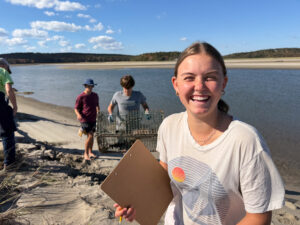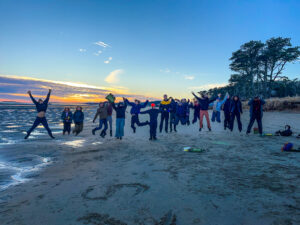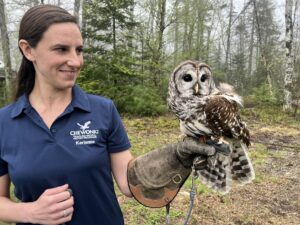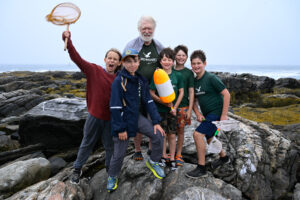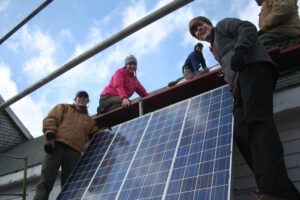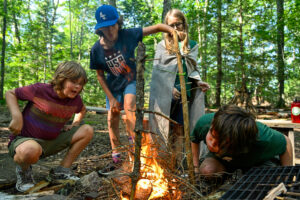“We ate at least three sticks of pepperoni at every meal,” recalls Aaron Altabet in a recent text message to Karen Blakelock. “…and, there was a suspicious amount of cheese blocks left over at the end of the trip!”
This is what happens when you put ten teenagers in charge of planning a ten-day leadership expedition to Canada’s north woods. “It’s a hands-on leadership training experience,” says Blakelock, who co-led the 2019 program with Altabet. “Not only were these campers getting lifeguard training and wilderness first aid certification, but we also had them get out their maps and plot out the itinerary. We taught them how to use packout to plan the menu and pack meals,” she says, as well as tackle more complicated decision making and risk management scenarios.
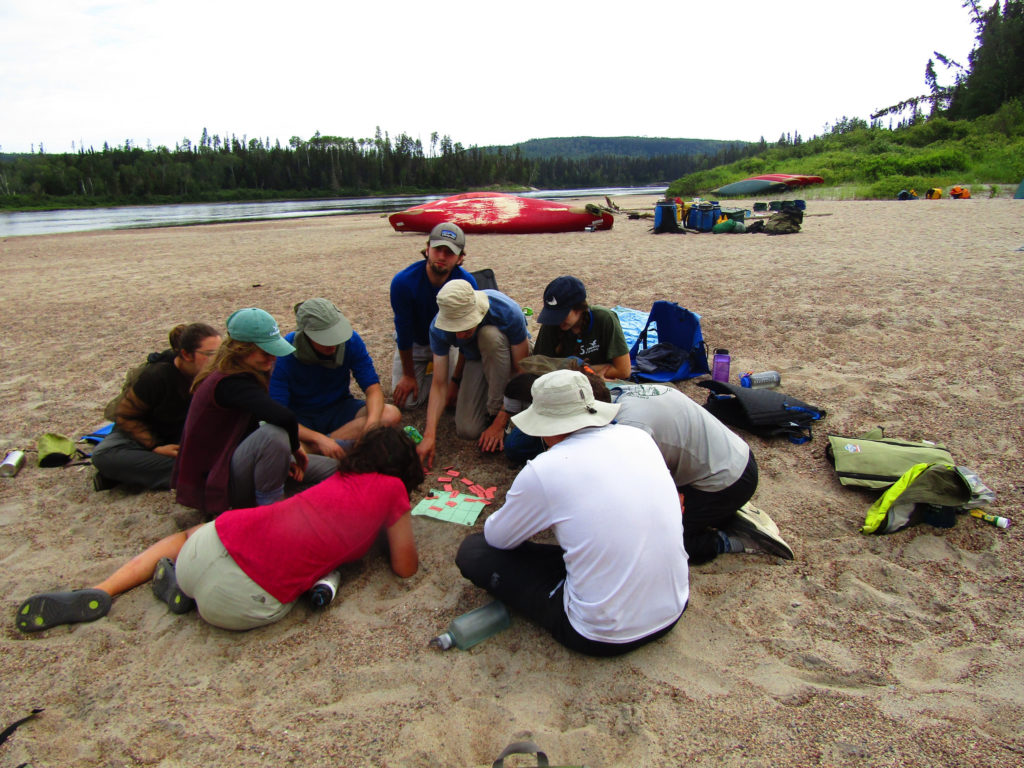
The LIT program prepares aspiring leaders to plan and lead multi-day outdoor expeditions, starting with their own. Participants are involved in every decision leading up to and during the trip. “Aaron and I would steer them away from anything totally outrageous. But, if it wasn’t going to be a safety issue, we let them have their way.”
Blakelock and Altabet’s approach resulted in some great learning experiences during our 2019 program, like when LITs discovered they had to portage a canoe over-packed with canned goods. “That was the natural consequence of how they planned the menu,” says Blakelock. Those LITs will have a visceral and humorous memory of dragging pickle-barrels full of cans to remind them to think through situations completely next time.
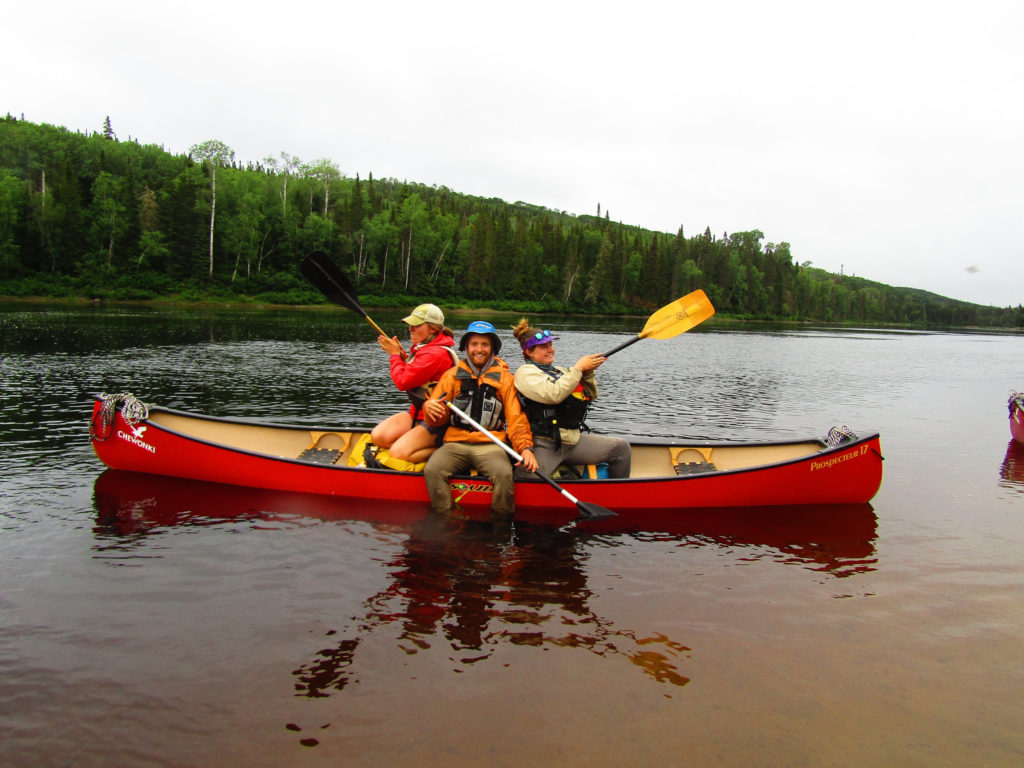
“I think that’s part of being a leader and working with kids,” says Blakelock. “You have to be able to laugh your way through minor inconveniences that come along.”
Planning a menu is just one aspect of the decision-making that goes into leading trips, and our LITs also learn to resolve more complex and emotional challenges. That year, for example, the group ended up rerouting the entire itinerary four or five days into the trip. “They had planned a really aggressive itinerary,” says Blakelock. “The whitewater was bigger than we were expecting, and we weren’t prepared.” The group was trying to complete so many kilometers that they were arriving at camp late and exhausted.
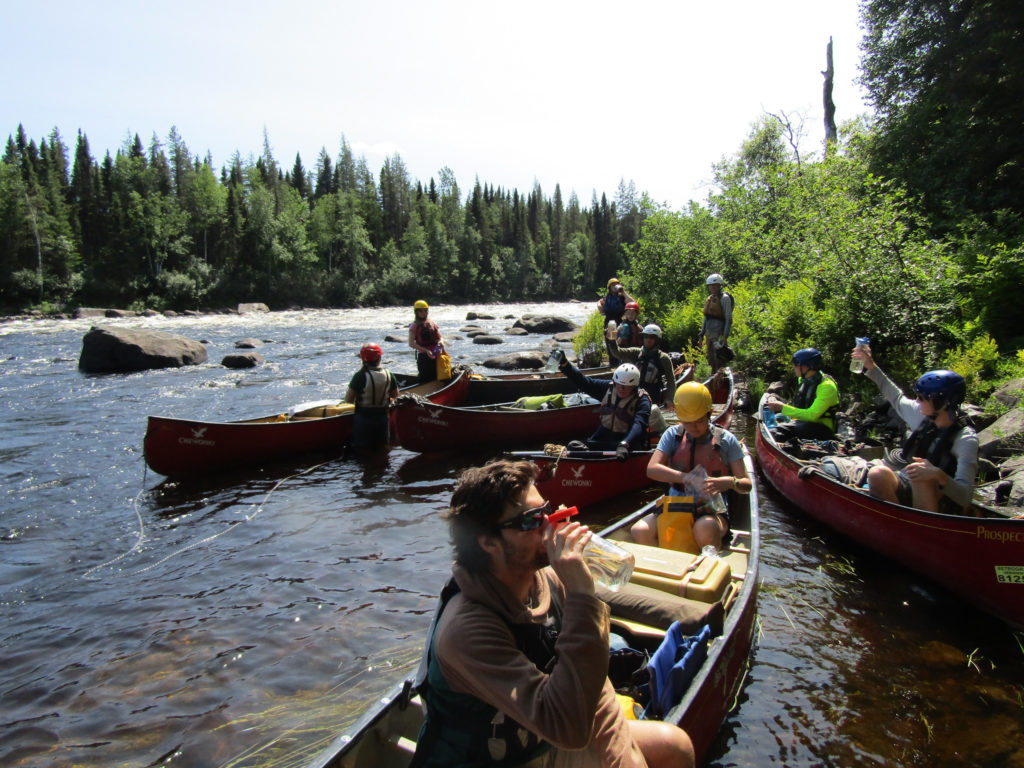
Blakelock and Altabet sat down with the LITs and laid out all the options and risk management considerations. The group decided to shorten each day, ending the trip at a closer point. Despite the collaborative nature of the decision, not everyone was happy. Some LITs felt that the trip was supposed to be hard, and knocking off a few kilometers was unthinkable. When this happened, Blakelock and Altabet stepped in to help participants reframe their thinking. “The LIT program isn’t about completing a big trip. It’s about learning to be a leader,” says Blakelock.
“That challenge ended up being one of the most valuable parts of the trip,” explains Blakelock. The LITs had to adjust their expectations based on risk and reward, “which is the mature thing to do when you’re a trip leader, and you’re accounting for more than yourself,” she says.
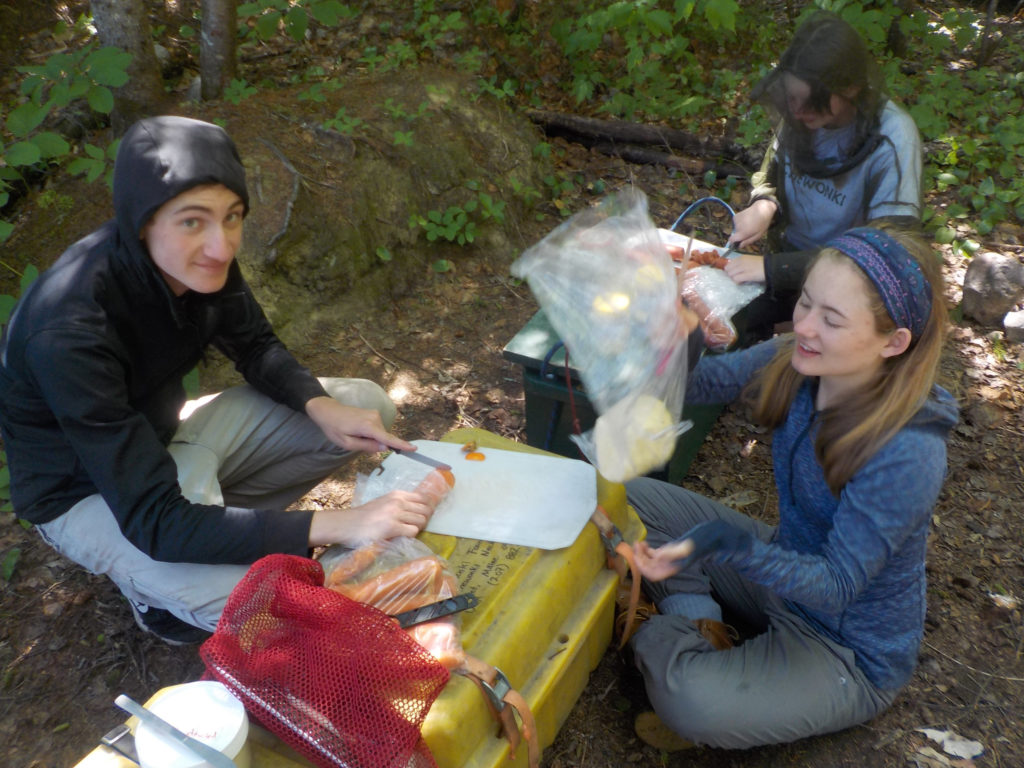
The lighter paddling days allowed for additional training. “We talked a lot about Maslow’s hierarchy of needs,” says Blakelock, “you’re not going to create an experience where participants can learn or have fun unless you meet their basic needs are met first.” The conversations moved towards a more nuanced discussion of leadership and how to create a nurturing environment that fosters a truly transformational experience while maintaining enough looseness to have fun and be goofy (these are trips for kids, after all!)
“A lot of the LIT program is about building confidence in future leaders,” says Blakelock. “You develop the ability to zoom out and see situations from an aerial perspective,” she explains, which is especially helpful in troubleshooting problems. Instead of going with the flow, LITs constantly assess situations for potential risks and mitigate them early. This type of intentionality contributes to academic success, says Blakelock, because it makes for well-reasoned decision making, and LITs can generally back up their work with clear arguments. It also makes for strong leaders that others look to for guidance and composure in the face of difficult situations.
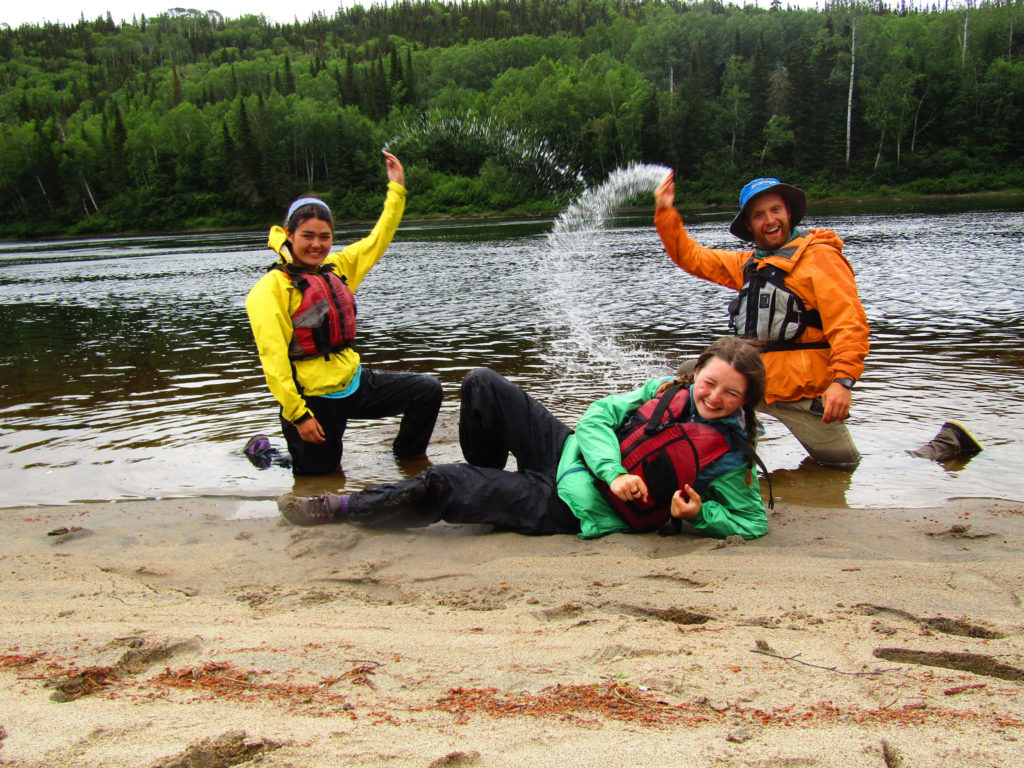
Reflecting on the trip, Blakelock feels the most pride in the way the LITs interacted with younger campers. Despite a busy training schedule, many LITs spent their free time volunteering to help cabin leaders and reading to Puffins (our youngest campers) before bed. “It made me proud to see how enthusiastic they were about jumping into these leadership roles,” says Blakelock. “Chewonki means so much to me,” she explains, “and I loved having the opportunity to teach young people how to pass this experience on to their participants.”
Blakelock herself recently completed her master’s in environmental law and policy. She now lives in Burlington, Vermont, where she works for the Necrason Group, a top-ranked government affairs and communications firm. We are thankful for all the work she’s done (along with Altabet and many others) to pass on her leadership skills to the next generation of Chewonki leaders, for all the pepperoni sticks and cheese blocks she ate in 2019, and hope to see her again soon!
